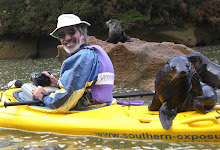I had a chance to experience a different aspect of that world today, all by myself, sitting at a computer solving graphing problems. I got a feel for how much discipline it must take on the part of an 18-year-old to spend time at a desk doing homework to pass a class that they know in their hearts (accurately or not) will have no use to them for the rest of their lives.
Tucson was warm and beautiful today. I have a couple of great bicycles in my garage that are a pleasure to ride and I haven't been on one of them since Thursday. Mt. Lemmon is already cool enough for a light jacket. There is still water in Sabino Canyon and Romero Pools. And I spent the day struggling through beginning functions.
The good news is, I know a bunch of stuff now that I didn't on Friday morning when I jumped in. Some of the stuff is sticking. It is a little exciting having light bulbs turn on. I might actually pass Monday's quiz.
I feel for some of my classmates. The ones for whom this is just review from high school will do fine. But for those of us who need to learn this material for the first time, it's not going to be easy going. There is no bluffing in math. The answer is right or wrong, at least at this level. I don't see how a lot of the kids are going to pass. I'm not sure about me.
But, have times ever changed. Inside of the classroom, not so much. It might as well be 1962. A teacher, a book, and a blackboard. O.K., a whiteboard. But at home, everything is different.
That $135 package that I complained about so much came with all kinds of goodies that I am beginning to appreciate. There are CDs packed with videos that cover every section of the book. There is a "solutions" book that works out problems step by step. And there is an online version of the book, the problems, and solutions that you can work through.
You click on a problem and a graph pops up where you can plot the points. There is a button that reads, "Help me solve this." You click on that and it walks you through the problem. You can ask for an example of the problem. You can watch a video clip where a teacher talks about what you need to know to solve the problem. And, when you enter the right answer, the screen produces a graphic that says "wonderful," "great job," and things like that.
It's like there is no excuse for not learning what's there except for wanting to be outside pedalling my bicycle up Mt. Lemmon at least to Windy Point rather than sitting in a dim room all day Saturday looking at a computer screen, scrawling numbers and letters on scrap paper, and wiggling my fingers over a grungy keyboard.
The Book
I need to write a note to Charisse and haven't yet. Hopefully tomorrow. In the meantime, I've been thinking about it.
My early thoughts are that I might not have the time or talent to write the book that I think would be the best. I don't know whether I can write as funny or as clever as I'd want the book to be. And, for that matter, I am not even sure I could write illustrative news stories as tight and credible as they ought to be. And, I'm pretty sure I would rather not take actual news stories from papers (even with permission) to illustrate what I'm writing about, because that would date the book so quickly.
So, I've been thinking about other formats.
One idea was to have a series of conversations between a fictional journalist/math guru and a young reporter about telling readers the truth with numbers and how.
When I was a freshman in high school my thing was drama. I wanted to write, act, direct, all of it. Gerald McCoy, one of my most important and best teachers, turned me on to Acting: The First Six Lessons
Another idea is to create a book that is similar in concept but involves discussions with notable people in the journalism world about why numbers matter. Those individuals will inevitably share examples of good things and bad things they had seen during their careers. After their discussions, I would write about the kinds of things they were referring to and give instruction on how to do those things.
And yet another slightly different approach would be to ask editors the question: "In terms of numbers, what is one thing that all working journalists absolutely must know how to do?" The answers, I imagine would be different, and using quotes from these leading editors as a take off point, I'd go into the hows and whys of particular skills that journalists should master.
Still, I need to get back on my bike tomorrow so I can think about some of these things.

No comments:
Post a Comment